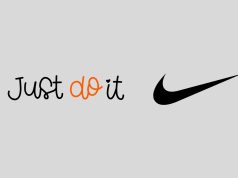In today’s rapidly changing professional world, one-size-fits-all career advice no longer cuts it. Workers face unique challenges, ranging from industry-specific hurdles to personal obstacles like work-life balance or imposter syndrome. Traditional mentors and career advisors often offer general advice, but what happens when you need more than cookie-cutter guidance? That’s where a scout comes in—a guide who tailors development plans specifically to you, offering the personalized attention needed to help you thrive in your career and beyond.
In this blog, we’ll explore how scouts take a personalized approach to career development, helping individuals like you unlock their full potential by addressing your unique strengths, challenges, and goals.
1. Understanding Your Unique Journey
One of the key ways scouts differ from traditional mentors is their focus on understanding you as an individual. Scouts don’t assume that everyone’s path to success is the same. They take time to get to know your specific journey—your career history, your aspirations, and the personal and professional challenges that you face. This in-depth understanding allows them to offer guidance that is uniquely suited to your needs.
How it works: Scouts begin by conducting a thorough assessment of your current career situation, strengths, and areas for growth. They consider not only your technical skills but also your soft skills, emotional intelligence, and overall mindset. From this starting point, they create a customized plan that addresses your individual needs, helping you navigate your own personal career path rather than following a generic roadmap.
Example: If you’re an introverted software engineer struggling to stand out in meetings, a traditional mentor might suggest broad strategies for “being more assertive.” A scout, however, would recognize your introversion and help you leverage your strengths—such as thoughtful communication and problem-solving skills—while offering practical techniques for making your voice heard in a way that feels authentic to you.
2. Tailored Skill Development
Everyone has different strengths and weaknesses. While some people excel in technical skills but struggle with leadership, others may be natural leaders who need help mastering new technologies. A scout tailors skill development based on your specific gaps, ensuring that you build the capabilities that matter most for your unique career path.
How it works: Scouts work with you to identify the areas where you need the most growth. They then create a personalized development plan, offering resources, exercises, and real-time feedback to help you improve. Instead of focusing on generic skills, scouts concentrate on the ones that will have the biggest impact on your career.
Example: Suppose you’ve just been promoted to a leadership role but feel unprepared to manage a team. A scout wouldn’t simply offer a list of leadership tips. They’d observe your current management style, help you identify areas for improvement, and work with you on specific leadership scenarios you’ll face, from conflict resolution to team motivation.
3. Addressing Personal Barriers to Success
Traditional career development often focuses solely on job-related skills and goals. But scouts understand that personal barriers—such as self-doubt, stress, or lack of work-life balance—can be just as limiting as professional obstacles. By addressing these personal challenges, scouts help you unlock the emotional and mental strength needed to thrive in your career.
How it works: Scouts take a holistic approach, looking at how your personal life and emotional well-being impact your professional performance. They help you identify and work through personal barriers like imposter syndrome, burnout, or even family pressures that might be holding you back. By doing so, they create a development plan that promotes both personal and professional growth.
Example: If you struggle with work-life balance and find yourself on the edge of burnout, a scout wouldn’t just tell you to “work smarter.” They’d help you set boundaries, manage your time more effectively, and develop strategies to ensure that both your work and personal life receive the attention they need, leading to more sustainable success.
4. Real-Time Feedback and Support
Personalized growth doesn’t stop at creating a development plan. What truly sets scouts apart is their ongoing, real-time feedback and support. As you work through your development journey, your scout is there to provide guidance, course corrections, and motivation, helping you stay on track and adjust as new challenges arise.
How it works: Scouts don’t wait for monthly check-ins to offer advice. They’re available to provide real-time feedback as you encounter new challenges or opportunities. This allows for quicker problem-solving and continuous improvement, ensuring that your growth is not only personalized but also responsive to the changes happening in your career.
Example: Let’s say you’re preparing for a critical presentation. A traditional mentor might give you general advice on how to improve your public speaking. A scout, however, would sit down with you to rehearse the presentation, offer real-time feedback, and suggest tweaks based on your delivery style. They’d even help you address the nerves you might feel leading up to the presentation, ensuring you walk into the room with confidence.
5. Adapting to Your Evolving Goals
As your career evolves, so do your goals. What you needed guidance on two years ago may be completely different from what you need now. Scouts understand that growth is an ongoing process and adapt their approach as your career journey progresses. This means that your development plan is always aligned with your current needs and long-term vision.
How it works: Scouts offer flexibility in their guidance, adjusting your development plan as you achieve milestones or face new challenges. Whether you’re taking on new responsibilities, switching industries, or seeking greater work-life integration, your scout continually tailors their approach to ensure that you’re growing in the right direction.
Example: You may have initially sought out a scout to improve your leadership skills, but as you progress, you might decide to transition to a new field. Rather than sticking to your original development plan, your scout would adapt, helping you identify transferable skills, explore new opportunities, and develop a strategy for making a successful career pivot.
6. Empowerment Through Co-Creation
Instead of simply telling you what to do, scouts work with you to co-create your development plan. This collaborative approach ensures that your personal and professional growth is not only tailored to your unique needs but also feels authentic and empowering.
How it works: Scouts engage you in the decision-making process, asking open-ended questions and encouraging you to take ownership of your development. By working together, you’ll create solutions that feel true to your personality and values, leading to greater motivation and commitment.
Example: If you’re struggling to find your niche within your company, a traditional mentor might suggest switching departments. A scout, however, would collaborate with you to explore different roles within the company, helping you reflect on what aligns with your strengths and passions. Together, you’d create a plan for finding a position that truly fits you.
Conclusion
In today’s complex, rapidly changing work environment, personalized growth is more important than ever. Scouts go beyond generic career advice by offering tailored, hands-on support that addresses your unique needs—both professional and personal. From developing specific skills to overcoming personal barriers and providing real-time feedback, scouts ensure that your growth is authentic, sustainable, and aligned with your long-term goals.
If you’re ready to take your career to the next level with a development plan that’s uniquely yours, working with a scout might be the transformative step you’ve been waiting for. Whether you’re aiming for a promotion, managing a career transition, or seeking better work-life balance, a scout can offer the personalized guidance you need to unlock your full potential.




























